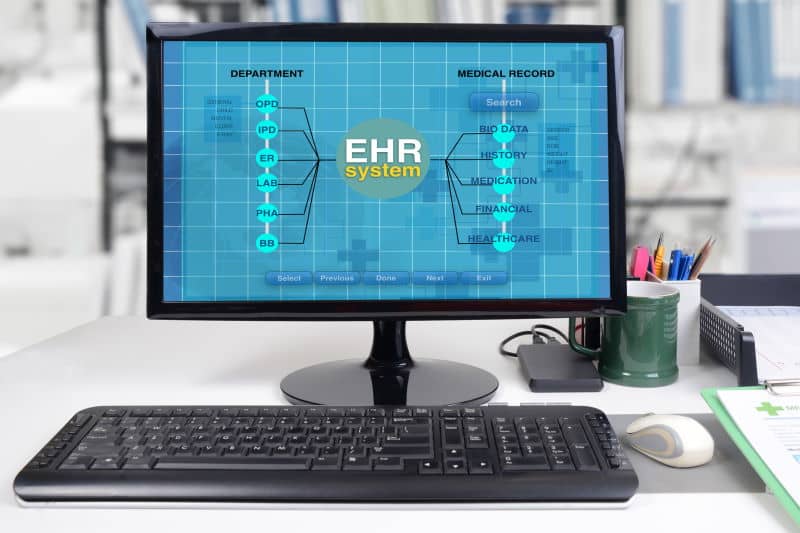Healthcare innovations in different branches and departments such as surgery are essential to ensure that medical services are delivered in the most efficient manner. However, there should also be equal focus on and effort in advancing various administrative systems that are considered the core of the industry. Health record systems, for example, should undergo technological advancements that can significantly benefit not just the patients but also the organization as a whole.
If your facility has been relying on manual health records since time immemorial, it might be time to rethink and reevaluate your approach. In this time and age where electronic and intelligent systems are the new normal, your healthcare facility shouldn't be left behind.
Why Go Electronic?
An electronic health record (EHR) system can facilitate records access from virtually anywhere, which would optimize the organization's efficiency in more ways than one. The system can simplify forms and patient data, making it easier for team members (whether they’re nurses, doctors, and other staff) to understand vital information. The result could potentially boost accuracy and workflow.
On the patients' end, an efficient EHR system can allow them to conveniently set appointments, receive notifications and reminders, and access educational content that could help them understand their condition and progress better. Indeed, a system like this can be highly advantageous for patients and healthcare providers or organizations alike.
How To Create An EHR System
First, it’d help to familiarize yourself with different resources and information regarding electronic health records and the systems you can choose to implement your own. Electronic medical records (EMRs) can only be beneficial if you're able to build a system that can meet your needs and preferences. If you don't know enough about them, one option is to hire an EMR consultant from True North or similar companies who can work with you to transition to implementing an EHR system for your practice.
One factor to consider is the size of your organization or practice. Some EHR systems are built for extensive facilities, while other systems function better when used by solo providers or smaller groups. Choosing the right system size or capacity can help ensure you'll be able to make the most of what it has to offer. Additionally, you can avoid unnecessary costs that could occur should you end up with the wrong option. It's also important to understand the difference between EHR (electronic health records) and EMR (Electronic Medical Records) if you are still struggling with that, don't worry, Experity explains the difference.
Other factors you need to consider are the following:
Nature Of Practice
EHR systems come with specifications and custom features depending on the nature of your practice. For example, if you're a team of psychologists, it's recommended to implement a system intended for psychologists. That way, the network will be highly efficient and convenient for everyone on the team.
The Cost
Of course, the budget will always be a crucial factor. The transition would involve using the money for acquiring tools and equipment that the EHR system will need, from computers to gadgets for your staff and practitioners. Other components that can contribute to the overall cost of your system include network and hardware updates, data storage and backups, employee training, and consultant fees.
Ease Of Use
While all new systems tend to be confusing at first, they become easier to handle once your team members get used to them. However, if your staff still finds it difficult to understand or navigate the system even after a considerable amount of time has passed, it could be that you've chosen a system that's too complex to use.
Make sure that the interface is intuitive and straightforward. Keep in mind that if the EHR software you're using isn't easy to use and understand, it could hinder the workflow and overall productivity of the team.
Thinking Beyond Medical Data Storage
EHR systems aren't made for data storage alone. With various technological advancements, you can select features that can significantly help improve the efficiency of your healthcare establishment. Aside from must-have features such as patient portals and communication capabilities, you can include other nice-to-have features that can boost competence among organization members.
There's e-prescribing that guarantees more accurate and on-time prescriptions. You can assign access and responsibilities based on employees’ roles in the facility. Doing so won't only ensure the right level of information access but also help keep the team productive. Advanced features such as auto-scheduling, speech recognition, and customer relationship management are also worth considering if your ultimate goal is to provide more enhanced and customer-focused services.
Final Thoughts
Technology makes it possible for the healthcare industry to provide better services and care to patients. You can tap into various innovations such as telemedicine and artificial intelligence (AI) that can help streamline your operations so your organization can have better revenues and attain higher patient satisfaction. Creating an efficient EHR system is also another way to tap into such innovations.
Just make sure your team is ready for the change. Choose a system based on the nature and size of your practice. Familiarize yourself with the different features that your network should have. You can also consider hiring a consultant to help you make the transition more seamless and effective.








